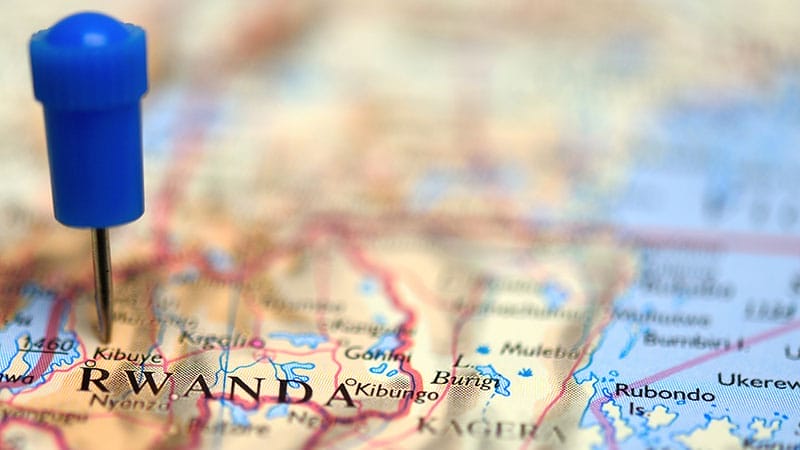One of the highlights of my Wharton MBA student experience is leading a team of five Wharton students to work with Kate Spade & Company on its “On Purpose” initiative, which focuses on women’s economic empowerment in Rwanda. When I first heard about On Purpose, I was excited to learn that one of my favorite brands had such an innovative corporate social responsibility program. Retail and economic development are two of my passions, and so I jumped at the opportunity to become involved with a project spanning both of these sectors.
As the leader of the Wharton team that included both MBAs and undergraduates, I oversaw the direction of the project and worked with both the Kate Spade & Company team and the Wharton Social Impact Initiative (WSII). Each team member brought a different skill set to the table. The work of fellow second-year Wharton MBA student Rita Chang, who spent several years working for Nike focusing on sustainable supply chain, was particularly valuable. My own experiences working in international development (for the World Bank Group in Washington and for an NGO in India) taught me that monitoring and evaluation is often one of the greatest challenges in this field.
Our team worked directly with Sydney Price, Kate Spade’s incredible SVP of corporate social responsibility. When we first met over lunch, Sydney told us about Kate Spade’s role in setting up a Rwandan-owned, women-owned, independent supplier in a town called Masoro in central Rwanda. This social enterprise employs more than 150 Rwandans, creating an economic ripple effect throughout the community. The Masoro supplier has been integrated into Kate Spade’s supply chain, and Sydney hopes that soon they will be able to stand as an independent manufacturing partner.
One of the greatest challenges facing any social enterprise is how to balance profits with purpose. Kate Spade & Company has excelled at this balancing act, and the Masoro supplier has managed to generate both economic and social returns. Kate Spade isn’t running a charity project; the retail and fashion design company is teaching the artisans of Masoro the skills and techniques necessary to become an independent, for-profit supplier integrated into the global economy. I was also impressed by Kate Spade & Company’s decision to measure the impact of their work by tracking social metrics systematically and objectively in partnership with the Akilah Institute for Women.
Kate Spade could have chosen to manufacture its products in China at a much lower cost, but instead it chose to spend a tremendous amount of effort to launch and support the artisans of Masoro, and they are working hard to get the operation on a cost scale comparable to that of China. It has been a difficult task, but the economic stability afforded to the Masoro region has transformed the local community of 20,000. This decision is paying off for Kate Spade as well: many of the handcrafted accessories from the On Purpose collection have already sold out.
When the Wharton Global Modular Course (GMC) in Rwanda visited the Masoro supplier in May, some of my Wharton classmates saw firsthand how Kate Spade & Company’s hard work is bearing fruit. The Wharton GMC students toured the production lines and learned about the broad spectrum of challenges facing the fledging social enterprise, including operational issues (such as quality control, inventory management and importing raw materials) and how to best prepare the Rwandan workers for leadership roles. They met with the women working in production, most of whom had previously worked in agriculture but were now were beginning to save money while learning life skills, such as financial literacy and maternal health care.
Not only is On Purpose contributing to economic growth and development in Rwanda, but the artisans of Masoro are creating some amazing handcrafted accessories—and lately I’ve been wearing the bangles almost every day.
Editor’s note: The original version of this article appeared on the Wharton Social Impact Initiative Blog on Nov. 6, 2015.

























